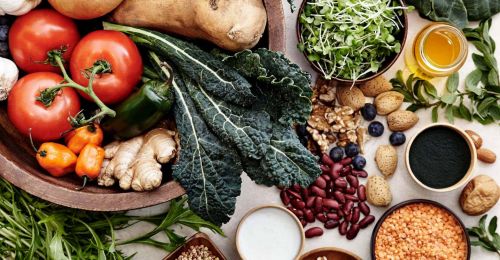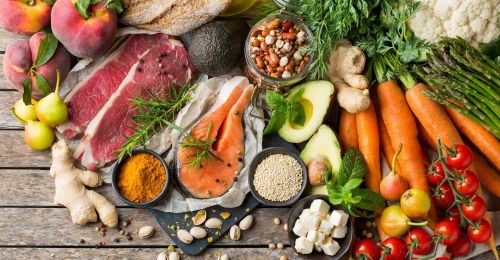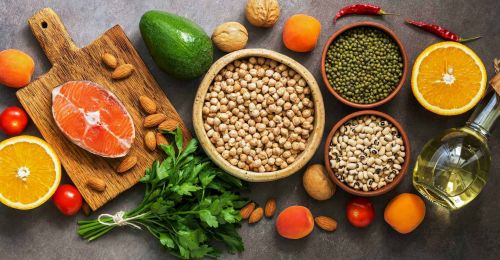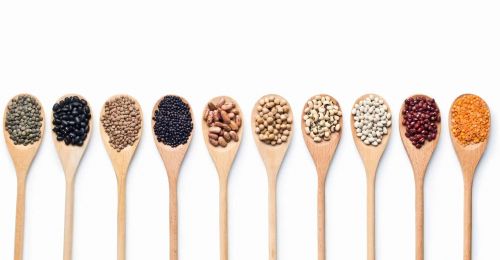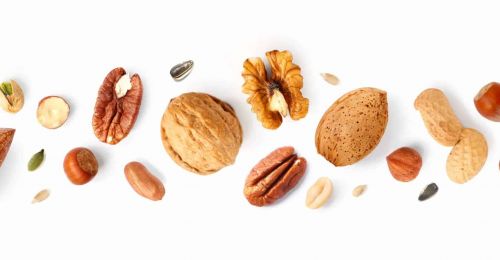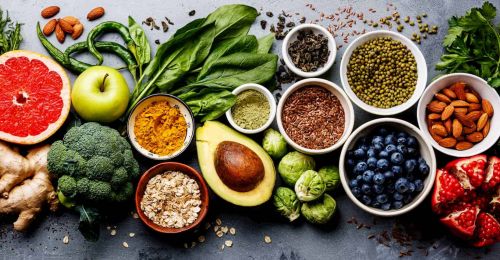The technology that guarantees the best absorption of Iron.
Find out moreDiet
Iron deficiency and diet: our advice for maintaining normal blood iron levels
It is always important to pay the right attention to what we eat. Unfortunately, in some cases, our daily routine does not help us in following an adequate and balanced diet. A hectic life, dictated by rigid work regimes, leaves little time to dedicate to healthy habits, including eating. However, have we ever thought that an inadequate diet could lead to a low intake of iron for our body?
Often, the most common mistake is an inadequate balance of macro- and micronutrients consumed through diet. A diet that privileges only some at the expense of others could lead to a number of disorders related to deficiencies or an increased need for certain nutrients on the long term.
A varied and balanced diet, on the contrary, includes all the essential nutrients for our body, promoting its normal state of health. Amongst these nutrients, iron should of course also be considered, which is essential for the normal formation of haemoglobin and red blood cells and for the normal transport of oxygen in the blood.
IRON-RICH FOODS
Iron is present in both animal- and plant-based foods. However, the bioavailability of iron in vegetables, legumes and grains is lower than that of the iron contained in meat.
The most iron-rich foods include the following:- Spleen
- Liver
- Horse meat
- Beef and veal
- Egg (yolk)
- Fish (tuna, snapper, mackerel, sardine, anchovy)
- Green leafy vegetables (endive, lettuce, spinach)
- Nuts
- Oat flakes
- Dried beans
IRON AND DIET: ITS IMPORTANCE AT ALL AGES
A healthy and balanced diet is an excellent starting point for maintaining normal blood iron levels. However, certain physiological conditions of particular interest to women (pregnancy, breastfeeding, menstrual cycle) may lead to increased body iron requirements. Iron is also important for growth and correct physical and cognitive development of children. Therefore, during childhood and adolescence, it is important to periodically monitor iron levels. The use of an iron-based dietary supplement, in combination with a balanced diet, may be useful in case of deficiency or increased needs for this nutrient. The SiderAL® range of nutritional supplements is designed to offer iron supplements in case of deficiency or increased needs for this nutrient.Want to know more?
Read the latest tips on iron and diet:Low iron: what to eat to promote normal levels of iron in the body
When iron is low, i.e., when we are dealing with sideropenia, it is important to know what …
Iron-rich foods: let’s find out about them to know how they can be useful for our body
Iron is a precious nutrient for our body because it plays an important role in the formatio…
Iron-rich diets: How useful are they for maintaining normal iron levels?
People suffering from iron deficiency or increased bodily needs for this nutrient can also …
Iron-rich plant-based foods: which to choose and how to cook them
Which iron-rich plant-based foods can we choose from to consume this mineral in adequate am…
Iron-containing fruit: which to choose for our well-being
Fruit contains essential nutrients for our body and is a valuable ally for our health. In a…
Which foods are rich in iron? Let’s find out with the iron-rich food table
What is the purpose of iron? Let’s find out more about its importance for the well-being of…
PharmaNutra Spa
Registered Office Via Campodavela, 1 56122 Pisa
Tel. +39 050 7846500
Fax +39 050 7846524
C.F. / P.Iva / Reg. Impr. 01679440501
Cap.Soc. € 1.123.097,70
I.V. | REA 146259
pharmanutra.it
Copyright © - Pharmanutra SpA. All Rights Reserved.
